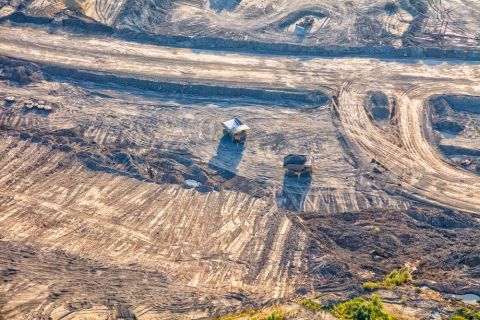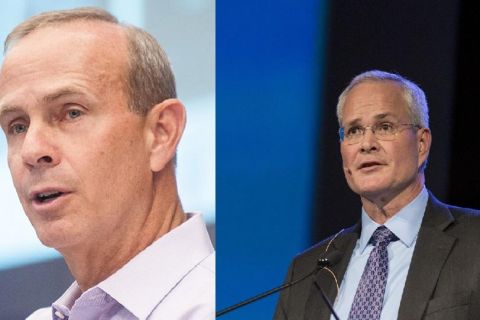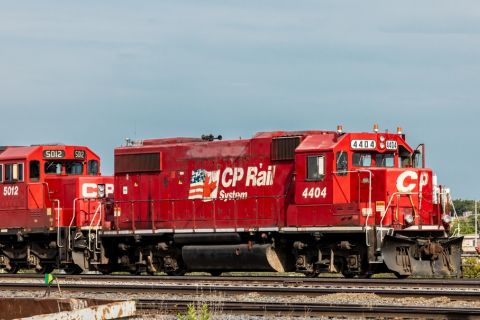Presented by:
Subscribe to receive notifications about new Energy Policy Watch episodes.
Government reports show that pipelines are the safest mode of transportation of moving oil—and only getting safer.
However, these facts appear to largely have been ignored by the seemingly growing opposition to pipelines. Perhaps, there is no better example of this than the executive order made by President Joe Biden earlier this year revoking the Keystone XL pipeline permit—effectively killing the project.
“To me the Keystone XL—the cancellation of that—was the triumph of political interference over an exhaustive and unbiased review,” said Andy Black, president and CEO of the Association of Oil Pipe Lines (AOPL). “Americans lost access, affordability and opportunity and, ironically, the environment lost too because the Keystone XL pipeline alternative was the best option for the environment.”
Black, who leads AOPL’s mission to promote responsible government policies, safety excellence and public support for liquid pipelines, recently spoke with Cornerstone Government Affairs’ Jack Belcher for the latest installment of the Energy Policy Watch series on pipeline safety, cybersecurity threats, climate policy and more.
During the wide-ranging discussion, Black shared some impressive statistics from a recent AOPL survey showing that 70% of the American public has a favorable impression of pipelines. Further, the intensity of public support for pipelines in the U.S., according to Black, is increasing.
“There are a lot of loud voices in energy—particularly oil and gas right now. … We wanted to know what the American public really thinks and whether those loud voices represent the true feelings of the American public,” Black said about the survey.
“When people learn about pipelines, they are comfortable with them and we have support,” he later added.
The Association of Oil Pipe Lines (AOPL) represents pipelines transporting 97% of all hazardous liquids barrel miles reported to the Federal Energy Regulatory Commission (FERC). The group’s diverse membership includes large and small pipelines carrying crude oil, refined petroleum products, NGL and other liquids. Find out more at aopl.org.
Topics:
- AOPL’s mission (1:20)
- Shutdowns, Keystone XL (3:15)
- Pipeline safety (4:50)
- Improving technology (6:25)
- Public outreach and support (7:45)
- Cybersercurity (10)
- Biden and climate policy (12)
- Why FERC matters (14:15)
- Anti-fossil fuel movement (16:40)
Energy Policy Watch is a partnership between Hart Energy and Cornerstone to bring regular video updates on legislative and regulatory actions affecting the energy industry. Guests range from key representatives or congressional staff to relevant cabinet-level officials and executive branch personnel. View More Energy Policy Watch Episodes Here.
Recommended Reading
Canadian Natural Resources Boosting Production in Oil Sands
2024-03-04 - Canadian Natural Resources will increase its quarterly dividend following record production volumes in the quarter.
Exxon, Chevron Tapping Permian for Output Growth in ‘24
2024-02-02 - Exxon Mobil and Chevron plan to tap West Texas and New Mexico for oil and gas production growth in 2024, the U.S. majors reported in their latest earnings.
NGL Growth Leads Enterprise Product Partners to Strong Fourth Quarter
2024-02-02 - Enterprise Product Partners executives are still waiting to receive final federal approval to go ahead with the company’s Sea Port Terminal Project.
After Megamerger, Canadian Pacific Kansas City Rail Ends 2023 on High
2024-02-02 - After the historic merger of two railways in April, revenues reached CA$3.8B for fourth-quarter 2023.
Enbridge Advances Expansion of Permian’s Gray Oak Pipeline
2024-02-13 - In its fourth-quarter earnings call, Enbridge also said the Mainline pipeline system tolling agreement is awaiting regulatory approval from a Canadian regulatory agency.






